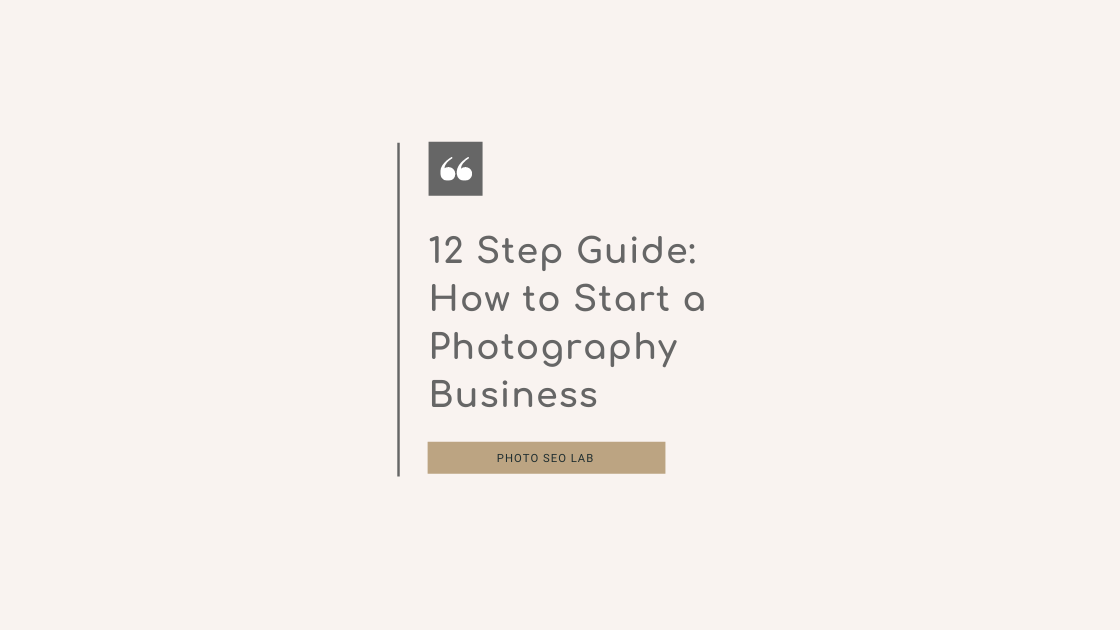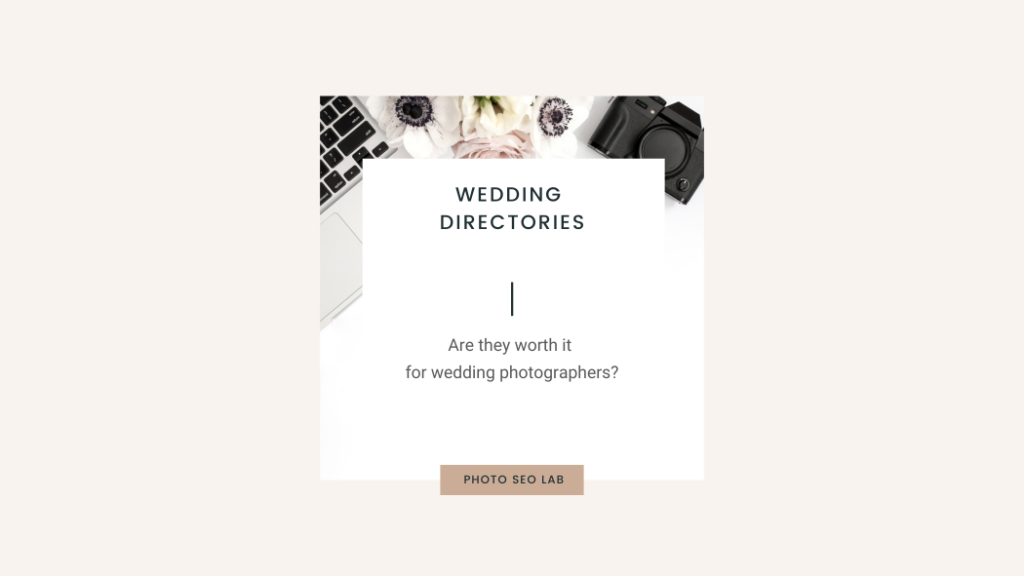How to Start a Photography Business

If you’re thinking of setting up a photography business, there are a few steps to take first to ensure you start out your new adventure with strong foundations that give you the best chance of success.
In this guide to starting a photography business, I share insights from my own experience as a wedding photographer. Professional photography is very different from hobby photography. You should only start providing services as a professional photographer when you can consistently deliver good-quality photos. A solid business strategy is also a must! So many photographers struggle with how much to charge. Having as much as possible planned out in advance will be really helpful. Here are some of the things that helped me, and others I wish I’d known sooner!
- 1. Figure out what your niche is
- 2. Don’t Buy Camera Equipment!
- 3. Create a Photography Business Plan
- 4. Photography Business Legalities
- 5. Create a Photography Portfolio of Your Best Work
- 6. Learn Photo Editing Software
- 7. Research the Competition and Find Your Unique Selling Proposition
- 8. Make Photography Industry Friends
- 9. Set up a Photography Website
- 10. Set up Social Media Pages
- 11. Start Marketing Yourself to Potential Clients
- 12. Keep Learning and Growing as a Photographer
1. Figure out what your niche is
Your chosen niche will massively influence what photography equipment you’ll need, so it will be important to try and figure this out first. The lenses used for commercial photography, for example, may be a little different from the lenses required for wedding or portrait photography. I’d highly recommend trying out a bunch of different things more than once. Often how a niche is perceived can be different from reality, so allow yourself time to find a photography specialty that you both love, and that aligns with your personality. I did not set out to photograph weddings. I loved photography but had no idea what I wanted to do, and stumbled into it quite by accident. When you are trying to figure out your photography niche, I’d recommend saying yes to things and spending a little time on them before discounting them.
2. Don’t Buy Camera Equipment!
This may sound counterintuitive, but trust me. Save your money. In the beginning, I would recommend hiring professional camera equipment rather than buying it. Good quality camera equipment is really expensive, and buying cheap lenses is a false economy. There are plenty of hire companies, so hire multiple lenses, and that way you can test out different photography kit and decide what will work best for your style and approach in your chosen niche. My favorite UK lense hire company is Lenses for hire.
3. Create a Photography Business Plan
A business plan will enable you to work out what your potential photography business costs will be. Your business plan will have quite different running costs if you have a studio compared to a business where you only shoot on location. Having a clear idea from the outset will help ensure you charge enough initially to be profitable
4. Photography Business Legalities
As a business owner, you’ll have certain legal obligations that will vary depending on your country or state. In California for example, there are strict privacy laws to adhere to. In the UK, clients will need to receive certain pre-contract information for the photography services contract to be valid, and there is a 14-day cooling-off period (far longer than the typical 3-day cooling-off period in the USA). You’ll want to ensure you have whatever photography business legalities that apply to you in place before you launch.
5. Create a Photography Portfolio of Your Best Work
If you’ve been experimenting in lots of different niches, you may be tempted to include all of your favorite work in your photography portfolio, but I advise against this. It’s best to only select work that reflects your chosen specialty.
6. Learn Photo Editing Software
Editing is an essential aspect of any photography business. Whilst you can contract out your photo editing to a 3rd part editing service, I’d argue you’d still need to know how to edit your own photos first. Editing style is very personal, and every photographer has their own style and approach to editing, so this will be a key part of your photography business journey.
It will be important to cost photography work in a way that includes editing time, to ensure what you will be paid accurately reflects the time spent.
7. Research the Competition and Find Your Unique Selling Proposition
There are many other professional photographers – what makes you different? Your unique selling point, or USP, will be a thing that sets you apart from local competitors that will make your business an easier choice.
Creating a USP is a good way to help avoid people choosing your photography business on price alone.
In my own photography business, my USP is that I always offer a complimentary venue visit with clients. Most of my competitors do not offer this, and I know it is something couples find reassuring before a wedding day, so offering this helps create differences between my photography business and a competitor’s business.
Whilst we’re talking about competition…
8. Make Photography Industry Friends
The photography industry is typically a friendly and welcoming place, however, local competitor friendliness can vary based on area. I would highly recommend joining some online photography groups. That way you can meet other photographers and be part of a community with professional photographers who are not direct competitors.
Another great way of meeting other photographers is to attend tradeshows, photography workshops, and training events.
9. Set up a Photography Website
You’ll need a professional website to showcase your portfolio. Whilst there are many great website solutions, a great place for a brand new photography business is on Squarespace. Now, I’m personally not a huge fan of Squarespace in general, but it’s perfect for new businesses and is one of the most affordable and simple solutions. You’ll need a few core pages to start with. As well as a home page, you’ll need the following pages; about, portfolio, and contact. You should also have a privacy policy page, and a page that explains copyright and image licensing. You’ll also need to ensure the photos you upload are named correctly for SEO and are optimum image size too. I’ve created a free image SEO optimization guide to help answer questions on that area.
Squarespace as a platform can be a little limiting, so I recommend WordPress as the best platform for established photography businesses due to its flexibility.
10. Set up Social Media Pages
I highly recommend setting up pages on all social media channels, even if you do not intend to use the platform. This will ensure you have a page on each platform in your business name, and a link back from each to your website. It can be a little overwhelming to be faced with the prospect of learning a whole bunch of social media platforms at once! I’d recommend choosing one platform, and then getting to know that really well, and doing some training on it so that you can get the best out of it. If I had to choose just one social media platform for a professional photographer to focus on, I’d recommend Instagram.
11. Start Marketing Yourself to Potential Clients
Photography marketing is a huge subject in its own right! There are lots of great ways to market your new photography business. My advice would be to keep things simple at first. Focus on your professional website and one or two social media channels initially, and then add more when you’re able to be consistent. I’d recommend creating a marketing plan that will be influenced by your chosen niche and where your potential clients are online.
12. Keep Learning and Growing as a Photographer
It’s important to keep your photography skills fresh and be also staying aware of industry trends. Regularly attending training events, and ensuring you make time to practice your craft will help you be a better photographer.
I hope this guide on how to start a photography business has been helpful!
About the author
Karen Julia is a professional wedding photographer, in the 16th year of her wedding photography business. She’s taught photography and Adobe Lightroom in FE colleges and now coaches SEO to photographers around the world.
Search
Categories
- Blogging (5)
- Business (5)
- Image SEO (7)
- News (2)
- Photographer SEO (27)
- Product Reviews (2)
- SEO Course (3)
- SEO Tools (1)
- Web Designers (5)
- Website Monetization (2)
Recent Posts
- How to Recover from a Google Business Profile Suspension
- Wedding Directories: Are They Worth it for Photographers?
- How Long Does it Take to Rank on Google?
- Tried & Tested Gift Ideas for Photographers
- Which is Best for Wedding Photography? Canon 35mm f1.4 or 50mm f1.2?
- How to Start a Photography Business
- Protecting Your Assets: How to Fire Your SEO Agency!
- How to Change Domain Name Without Losing SEO Rankings
- Website Accessibility for Photographers


